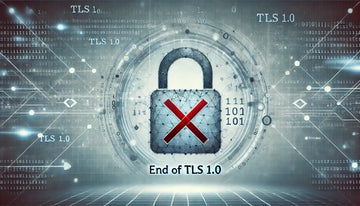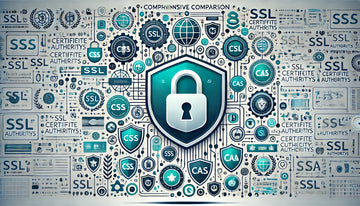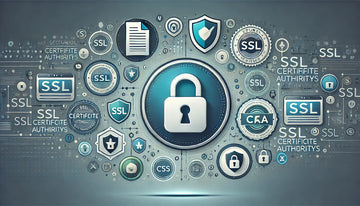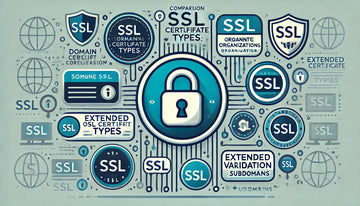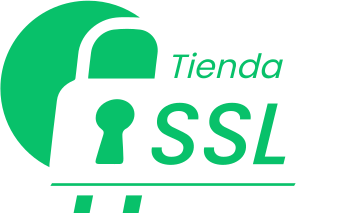Data privacy and security have become increasingly critical concerns in the digital world. With regulations such as the General Data Protection Regulation (GDPR) now in force, businesses must ensure they comply with strict data protection requirements to avoid hefty fines and damage to their reputation. One of the most effective tools for meeting these requirements is the use of Secure Sockets Layer (SSL) certificates.
In this blog post, we will explore how SSL certificates help businesses comply with GDPR by securing user data, building trust with customers, and ensuring the protection of personal information.
What is GDPR?
The General Data Protection Regulation (GDPR) is a comprehensive data privacy law that came into effect in May 2018, designed to protect the personal data of individuals in the European Union (EU). GDPR requires businesses to safeguard the data they collect and process from customers and website users. Non-compliance can result in severe penalties, including fines of up to €20 million or 4% of a company’s global annual revenue.
Under GDPR, businesses are responsible for implementing security measures that protect user data from breaches, unauthorized access, and cyber threats. SSL certificates play a vital role in fulfilling these requirements by ensuring secure data transmission between users and websites.
How SSL Certificates Help with GDPR Compliance
1. Data Encryption
One of the key requirements of GDPR is that businesses must take appropriate steps to protect personal data. SSL certificates encrypt the data transmitted between a user's browser and the website’s server, ensuring that sensitive information such as names, addresses, credit card details, and passwords are protected from interception by hackers.
Without SSL encryption, data is transmitted in plain text, making it easy for cybercriminals to access and misuse. By encrypting data, SSL helps prevent unauthorized access and keeps personal information secure, making it an essential tool for GDPR compliance.
2. Protecting Data Integrity
GDPR emphasizes the importance of data integrity, which means ensuring that personal data is not altered or tampered with during transmission. SSL certificates help maintain data integrity by securing the communication between users and websites. This prevents hackers from intercepting, altering, or injecting malicious content into the data flow, safeguarding the accuracy of the transmitted information.
Data integrity is crucial for maintaining the trust of users and ensuring that the data processed by businesses remains accurate and reliable.
3. Authenticating Websites
GDPR requires businesses to ensure that the data they collect is only accessed by authorized parties. SSL certificates verify the identity of the website by authenticating its server, which provides assurance to users that they are interacting with the legitimate site rather than a fraudulent or malicious one.
There are different types of SSL certificates, each offering varying levels of authentication. For e-commerce websites and businesses that process large amounts of personal data, Extended Validation (EV) SSL certificates provide the highest level of authentication, displaying a green address bar and the company’s name, further reassuring users of the site’s legitimacy.
4. Securing Online Transactions
For businesses that engage in e-commerce or collect personal payment information, GDPR places a significant emphasis on the security of financial transactions. SSL certificates provide an encrypted connection that ensures all payment details entered by users are secure and protected from third parties.
Moreover, SSL certificates help businesses comply with the Payment Card Industry Data Security Standard (PCI DSS), a set of requirements that govern the security of payment information. By securing financial transactions with SSL, businesses not only comply with GDPR but also adhere to industry standards for data protection.
5. Building Trust with Users
A critical aspect of GDPR is the requirement for transparency and accountability when handling user data. SSL certificates play a significant role in building trust with users by providing visual indicators—such as the padlock icon and HTTPS in the address bar—that signify a secure connection.
When users see these symbols, they are more likely to trust that their personal data is being handled securely, which encourages them to provide information or complete transactions. Trust is essential for maintaining a strong customer relationship, and SSL certificates contribute to building that trust by ensuring data protection.
SSL, GDPR, and Data Breach Prevention
GDPR mandates that businesses must take all reasonable steps to prevent data breaches, including implementing appropriate security measures to protect user data. In the event of a breach, companies must report it to the relevant supervisory authority within 72 hours. Failure to do so can result in fines and legal consequences.
SSL certificates serve as a first line of defense against data breaches by encrypting the data exchanged between users and websites. This encryption ensures that even if data is intercepted, it cannot be read or misused by attackers. By implementing SSL, businesses significantly reduce the risk of a data breach, helping them comply with GDPR’s data security requirements.
Steps for Implementing SSL for GDPR Compliance
If your business processes personal data and needs to comply with GDPR, implementing SSL should be a priority. Here’s how to get started:
1. Choose the Right SSL Certificate
There are several types of SSL certificates to choose from, depending on the level of security and trust you need:
- Domain Validated (DV) SSL Certificates: Offer basic encryption and are ideal for small websites or blogs.
- Organization Validated (OV) SSL Certificates: Provide a higher level of authentication by verifying the organization’s identity, suitable for small to medium-sized businesses.
- Extended Validation (EV) SSL Certificates: Offer the highest level of authentication, including the green address bar, and are ideal for e-commerce sites or businesses processing significant amounts of personal data.
For GDPR compliance, an OV or EV SSL certificate is recommended, as these provide both encryption and authentication, ensuring secure data transmission and trustworthiness.
2. Install the SSL Certificate
After purchasing the appropriate SSL certificate, you’ll need to install it on your web server. Most hosting providers offer straightforward guides or even automatic SSL installations. If you're using a content management system like WordPress, plugins such as Really Simple SSL can simplify the process.
3. Redirect HTTP to HTTPS
Once SSL is installed, it’s important to ensure that all traffic to your site is redirected from HTTP to HTTPS. This can be done by setting up 301 redirects, ensuring that both users and search engines are directed to the secure version of your website.
4. Regularly Monitor and Renew SSL Certificates
SSL certificates are typically valid for one or two years and must be renewed to maintain your site’s security. It’s essential to monitor your SSL certificate’s expiration date and renew it promptly to avoid potential data breaches or loss of compliance with GDPR.
Additional Measures for GDPR Compliance
While SSL certificates are a crucial part of GDPR compliance, they should be combined with other security measures to ensure complete data protection:
- Data encryption at rest: Use encryption to protect data stored on your servers, not just data in transit.
- Access controls: Limit access to personal data to authorized personnel only.
- Regular audits: Conduct regular security audits to identify and address vulnerabilities in your systems.
- Data minimization: Collect and process only the data necessary for your business operations, in line with GDPR’s data minimization principle.
Conclusion: SSL is Essential for GDPR Compliance
In an era of increasing data privacy regulations, SSL certificates are a critical component of GDPR compliance. By encrypting data, authenticating websites, and securing online transactions, SSL helps businesses protect user data, build trust, and meet the strict requirements of GDPR.
For businesses that handle personal information, implementing SSL is not just about meeting legal obligations—it’s about ensuring the privacy and security of your customers. By investing in SSL, you can demonstrate your commitment to data protection and build a foundation of trust with your users.








